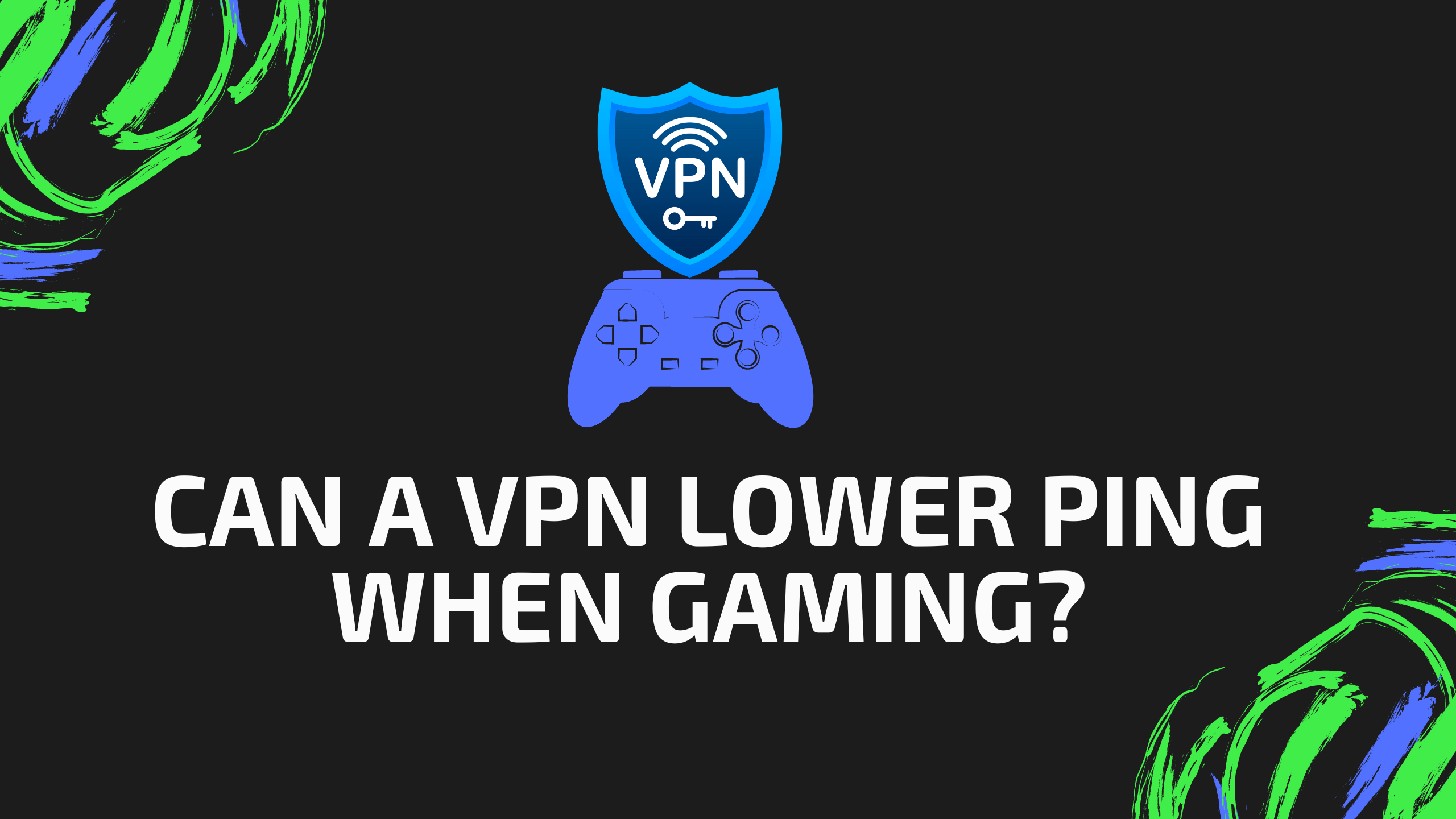
As online gaming has become increasingly popular, many gamers have started to use virtual private networks (VPNs) to reduce latency and improve their gaming experience. However, there are still some doubts and misconceptions about whether a VPN can actually lower ping when gaming.
Let’s discuss how VPNs work and whether they can help reduce ping when gaming.
What is a VPN?
A VPN is a tool that encrypts your internet traffic and routes it through a secure server located in another country. This can help protect your online privacy and security by masking your IP address and preventing third-party monitoring of your online activities.
However, a VPN can also have an impact on your internet speed and latency, which can affect your online gaming experience.
How Does a VPN Work?
A VPN is a tool that encrypts your internet traffic and routes it through a secure server located in another country. This can help protect your online privacy and security by masking your IP address and preventing third-party monitoring of your online activities.
When you connect to a VPN, your internet traffic is encrypted and sent to a VPN server, where it is decrypted and forwarded to its destination. This process can increase the distance between your device and the game server, which can result in higher ping.
What is Ping?
Ping, also known as latency, is the measure of how long it takes for data to travel from your device to a game server and back. It is measured in milliseconds (ms), and lower ping means faster and more responsive gameplay.
Factors that affect ping include distance, internet speed, and network congestion. The further away a game server is from your location, the higher your ping will be. Slower internet speeds can also increase latency, as can network congestion caused by heavy traffic.

Can a VPN lower ping when gaming?
A fast VPN for gaming can help reduce ping and improve your gameplay. Here are some factors to consider:
1. Distance
If you are playing a game on a server far from your physical location, using a VPN can help reduce the distance and improve your ping. For example, if you are in Europe and playing on a server in the US, connecting to a VPN server in the US can help reduce your ping.
2. Internet speed
When gaming online, your device sends and receives large amounts of data in real-time, such as your movements and actions in the game and the activities and actions of other players. If your internet connection is slow or congested, this can result in delays and packet loss, increasing latency and negatively impacting your gaming experience.
To help lower your ping when gaming, it is essential to have a fast and reliable internet connection. This can be achieved by upgrading your internet plan, optimizing your network settings, and using a wired Ethernet connection instead of Wi-Fi.
3. VPN server location
The location of the VPN server can play a significant role in lowering ping when gaming. The closer the VPN server is to the game server, the lower the latency.
When you connect to a VPN server, your internet traffic is encrypted and routed through that server before it reaches its destination. This means that the distance between the VPN server and the game server will affect the time it takes for data to travel back and forth, which can impact your ping.
For example, if you are playing a game on a server located in the United States and you are physically located in Europe, connecting to a VPN server located in the United States can increase the distance your data travels, which can increase your ping. However, if you connect to a VPN server located in Europe, your data has less distance to travel, which can help lower your ping.
In addition to the physical distance, the quality of the VPN server can also impact ping. A high-quality VPN server with fast and reliable connections can help reduce latency, while a poorly performing server can increase latency.
Read More:
4. VPN protocol
The VPN protocol you use can also play a role in lowering ping when gaming. Different VPN protocols have varying levels of overhead, which can impact latency and affect your ping.
Overhead refers to the additional data added to your network traffic as encrypted and decrypted by the VPN. This additional data can increase the time it takes for your data to travel back and forth, resulting in higher latency and a higher ping.
Some VPN protocols, such as OpenVPN, have a higher overhead level than others. This is because OpenVPN uses encryption algorithms that are more secure but require more processing power, which can increase latency.
Other VPN protocols, such as WireGuard, have lower overhead and are designed to be faster and more responsive. WireGuard uses modern encryption algorithms that are more efficient and require less processing power, which can reduce latency and improve your ping.
Conclusion
Using a VPN can help lower ping when gaming by reducing the distance your data travels, improving network stability, and providing a more direct route to the game server. However, the location of the VPN server, the quality of the VPN infrastructure, and the VPN protocol used can also affect ping.
It is essential to choose a VPN provider with fast and reliable servers and to use a VPN protocol with low overhead to help minimize latency. Additionally, a fast and reliable internet connection is crucial for improving ping when gaming. By considering all these factors, gamers can use a VPN to help reduce ping and enhance their online gaming experience.




